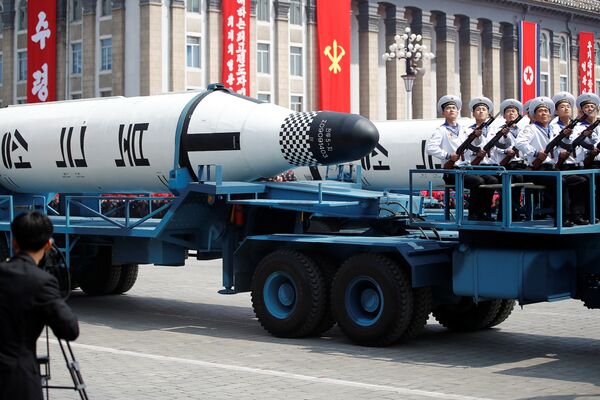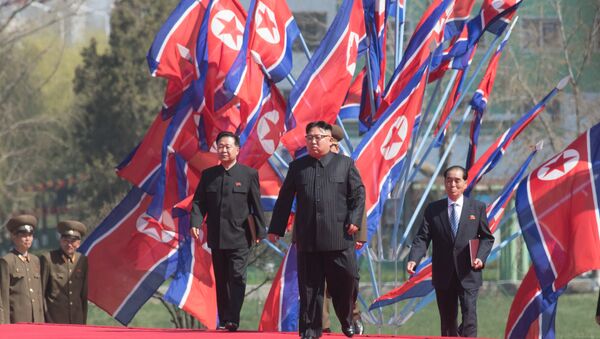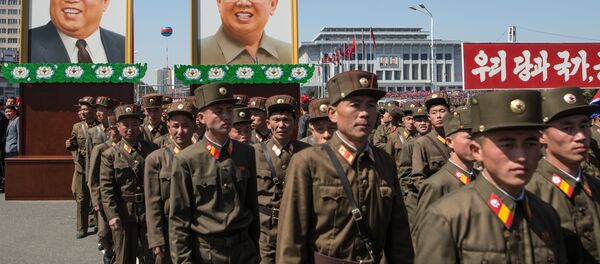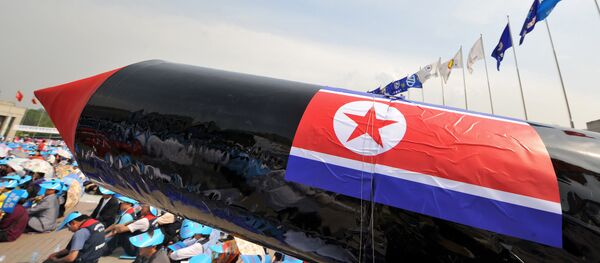As the week draws to the close, on the Korean peninsula, tensions continue to escalate. With a new US president in the White House, North Korea's dictator Kim Jong-un has been more active than ever in his efforts to establish North Korea as a military power in the region. There have been a series of ballistic missile tests — all illegal, and all provocative in the extreme to Pyongyang's neighbors.
In March 2017, three of North Korea's missiles landed within Japan's exclusive economic zone, off the Oga Peninsula in the Akita prefecture, which is home to the Japanese Self Defense Force. South Korea and Japan are scrambling to re-calibrate how best to respond to North Korea's actions.
What is muddying the waters is the Trump's administration own failure to form a consistent North Korea foreign policy. US President Trump has flip-flopped between aggressively anti-Chinese public statements on Twitter, and acknowledging Beijing's pivotal influence on Pyongyang.
I have great confidence that China will properly deal with North Korea. If they are unable to do so, the U.S., with its allies, will! U.S.A.
— Donald J. Trump (@realDonaldTrump) April 13, 2017
Why would I call China a currency manipulator when they are working with us on the North Korean problem? We will see what happens!
— Donald J. Trump (@realDonaldTrump) April 16, 2017
Added to the confusion was the embarrassing revelation that President Trump misled the world on a key strategic military deployment. President Trump had previously stated in a TV interview that he was sending the US Navy towards the Korean peninsula to ward off any further North Korean missile launches. Just days later, on Wednesday April 19, Trump's Defense Secretary Jim Mattis was forced to concede that the USS Carl Vinson was in fact over 3,000 miles away and heading in the opposite direction — towards Australia.

It will strike some analysts as ironic then, to hear Secretary Mattis' latest comments that the North Korean regime's word "has not proven honest."
However, the US appears to be trying to re-shape the narrative of commentary on US foreign policy towards North Korea. Instead of courting more controversy, President Trump praised Chinese efforts to rein in "the menace of North Korea" on Thursday night (April 20).
However both public pronouncements by the president and his defense secretary have not allayed the fears of the US's allies in the region.
On Friday April 21, South Korea said it was on heightened alert ahead of another important anniversary in North Korea, with a large concentration of military hardware amassed on both sides of the border.
And on Tuesday, April 25, North Korea will mark the 85th anniversary of the foundation of its Korean People's Army. South Korean officials have been warning for weeks that the North could soon stage another nuclear test in violation of United Nations sanctions to coincide with the date.




